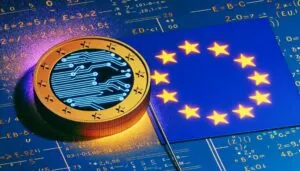Subscribe to our Telegram channel

European regulator may introduce digital euro on Solana blockchain
European officials have accelerated the development of the digital euro amid the adoption of the Genius Act in the United States, which regulates the $ 288 billion stablecoin market. According to the Financial Times, among the possible infrastructure options, the ECB and the European Commission are considering the use of public blockchains, such as Ethereum ETH $1,980.86 Bridged Ether (StarkGate) 0.29% Market capitalization $45.36 million VOL. 24 hours $0.64 billion or Solana SOL $84.93 Binance-Peg SOL 0.47% Market capitalization $93.44 million VOL. 24 hours $0.22 billion , which means a change of course from the previously planned private solutions.
The reason for this step is the desire to maintain the competitiveness of the European financial system. Officials emphasize that the digital euro should not be a substitute for cash, but a complement to it. «The digital euro, banknotes, and coins will complement each other, expanding the choice of payment options,» said Piero Cipollone, a member of the ECB Executive Board.
The discussion of the use of public blockchains has caused a mixed reaction in the financial community. Proponents point to the benefits of transparency and interoperability with other systems, while skeptics emphasize privacy risks and the need for additional data protection mechanisms.
Ethereum is seen as one of the key options for launching a digital euro. As of August 22, 2025, its price was $ 4,288.74, its market capitalization was $ 517.68 billion, and its market share was 13.49%. Over the past 30 days, ETH has risen by 14.81%, although it lost 7.5% over the past week. This emphasizes both the volatility and the importance of the asset in the global crypto ecosystem.
Coincu analysts note that the transition to public blockchains could significantly change the financial landscape of Europe, providing greater accessibility and transparency, but at the same time limiting traditional banking control. The exact timeline for the introduction of the digital euro remains unknown and will depend on further consultations and a balance between innovation and citizen data protection.

